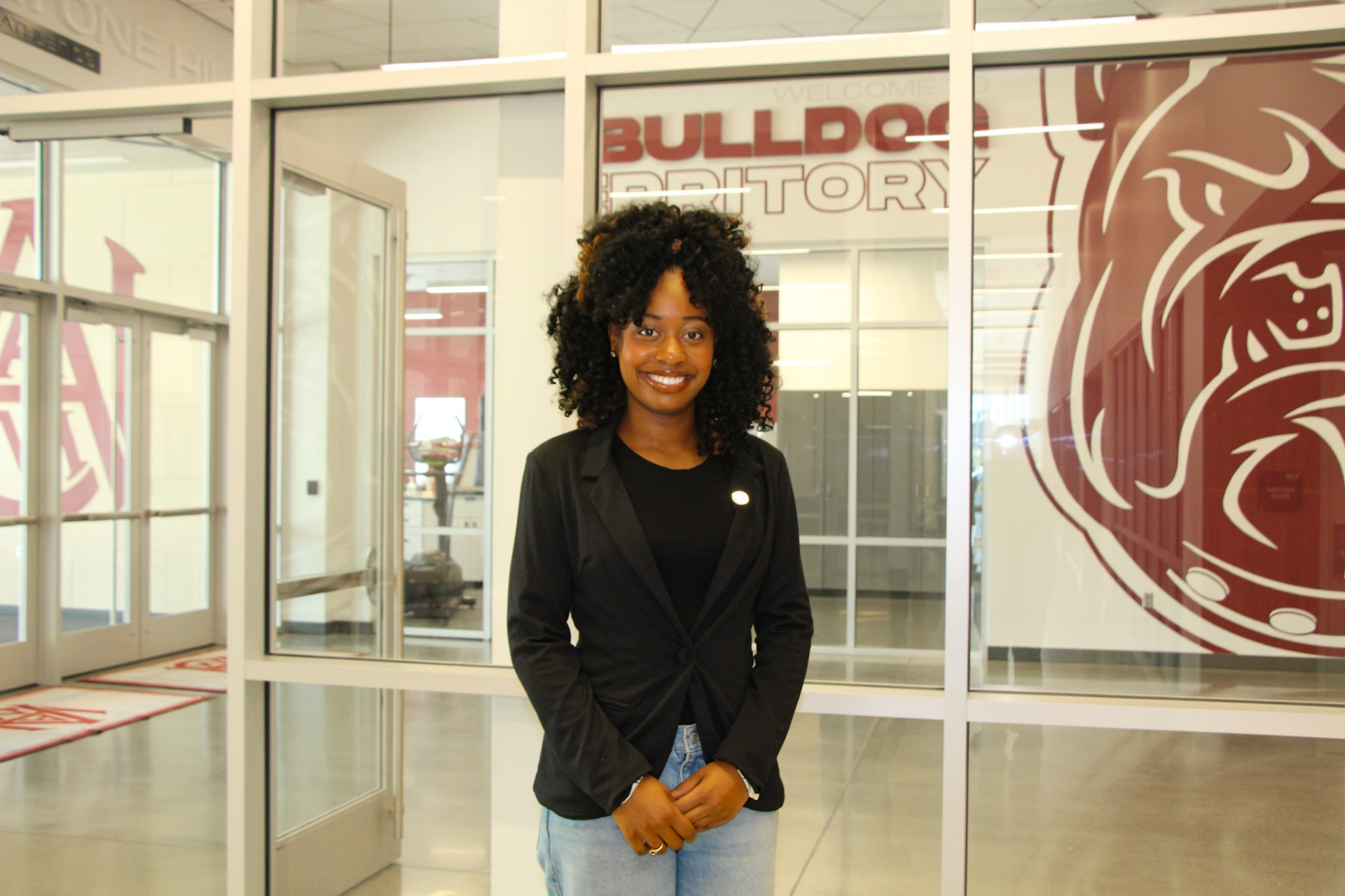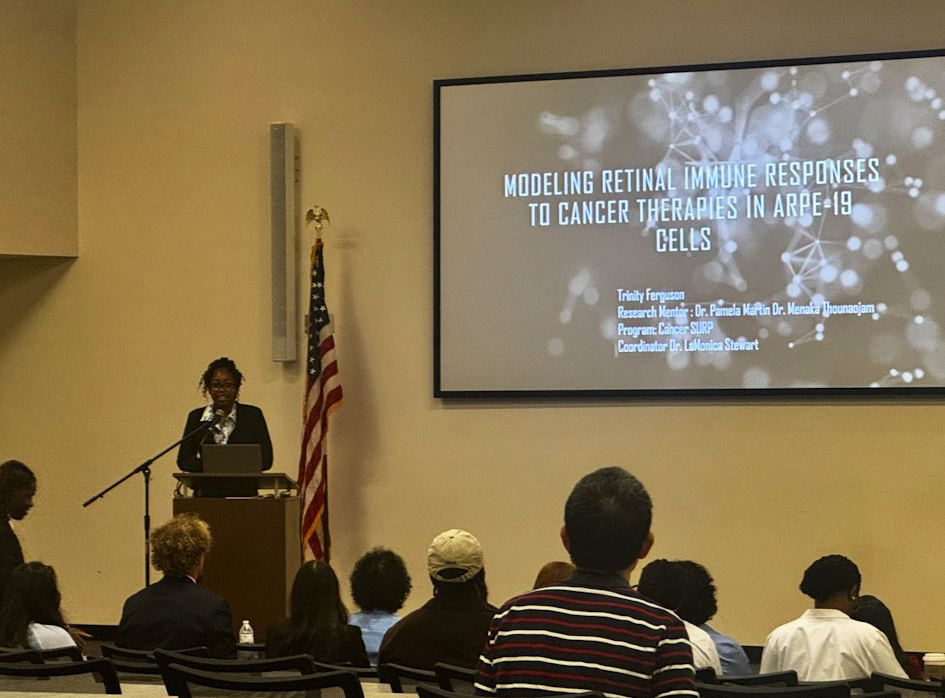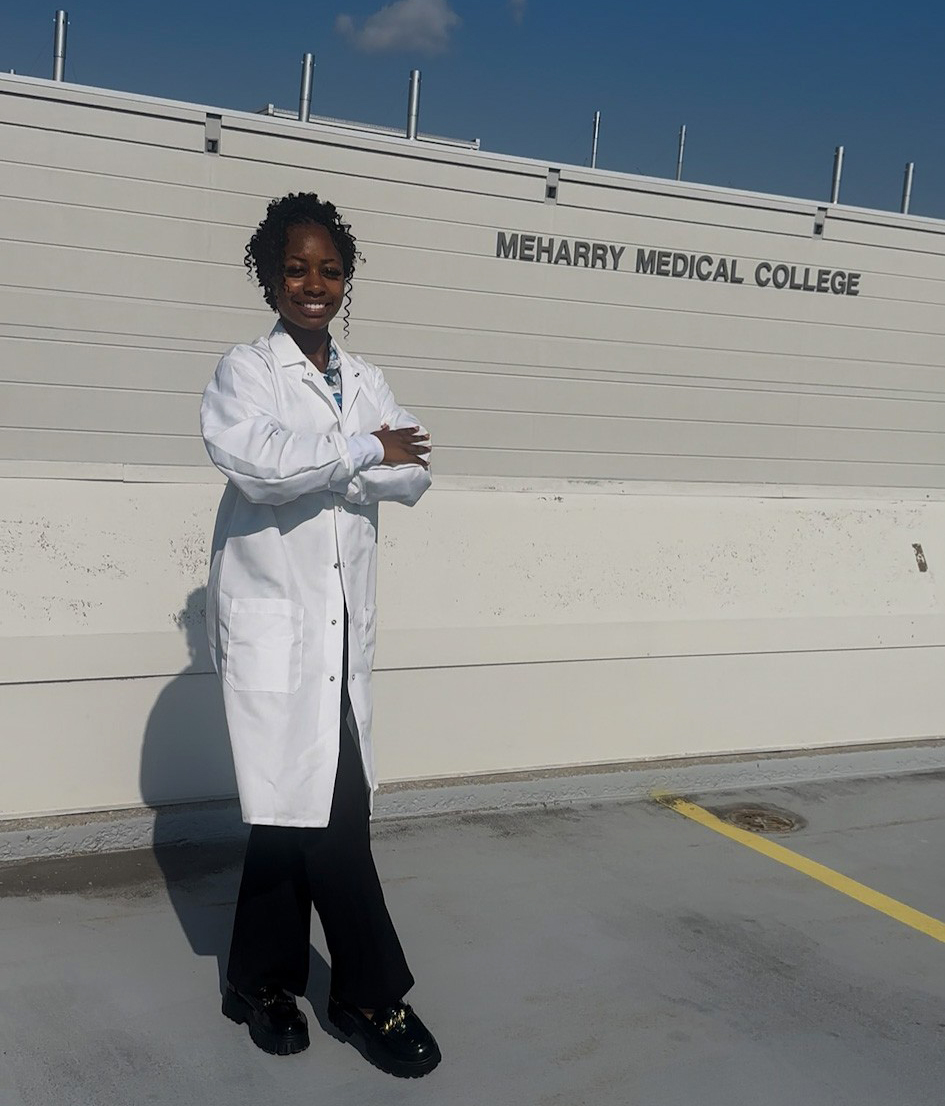Ferguson Among Just 10 Undergraduates Chosen Nationwide for Competitive Summer Program

Ferguson Selected for Prestigious Meharry Cancer Research Fellowship
When Alabama A&M University sophomore Trinity Ferguson opened her acceptance letter from Meharry Medical College last spring, she realized a dream she had been chasing since her freshman year. Out of hundreds of applicants nationwide, Ferguson – an honors biology major from Birmingham, Alabama, was one of just 10 undergraduates selected for the Meharry Cancer Summer Undergraduate Research Program, a 10-week fellowship in Nashville.
From May 19 through July 25, 2025, Ferguson immersed herself in intensive laboratory research at Meharry Medical College under the guidance of Dr. Martin, chair of the Department of Biomedical Sciences, and Dr. Menaka Thounaojam, associate professor and researcher, with support from medical student Zane Wilson. Her project, “Modeling Retinal Immune Responses to Cancer Therapies in ARPE-19 Cells,” examined how widely used cancer drugs such as Carboplatin and Paclitaxel – common treatments for breast and cervical cancer – may also trigger unintended side effects in the eye.
ARPE-19 cells – short for adult retinal pigmented epithelial cells – are human cells often used in research to model how the retina works. The retinal pigment epithelium sits between the retina, which receives light, and the choroid, which supplies blood. These cells act as a barrier and support system, making them critical for healthy vision and ideal for studying how drugs or disease may affect the eye.
“This program gave me exposure to both sides of my career interests – pediatric oncology and medical research,” Ferguson explained. “I learned not only advanced lab skills, but also how to think critically about the bigger picture of patient health and the future of cancer treatments.”

Her research included techniques such as Western blotting, cell splitting, protein testing, and even dissecting mice’s eyes to study the retina and optic nerve. She investigated how Carboplatin and Paclitaxel – drugs commonly used to treat breast and cervical cancer – interacted with retinal barrier cells, finding that Carboplatin had a stronger negative effect. Alongside this work, she also examined immune checkpoint proteins CTLA-4 and PD-1, both critical in regulating T cells that fight cancer.
Beyond the science, Ferguson says the program reshaped how she views her journey in medicine.
“I learned the importance of building community and leaving a mark wherever you go,” she said. “Professors, mentors, and peers see more in you than you sometimes see in yourself. That encouragement pushes you to aim higher.”
Ferguson credits Alabama A&M with preparing her to compete for opportunities like this one. She recalls a moment in her Physics I class with Dr. Mohan Aggarwal, who told her, “I see the intelligence in your eyes.” Those words, she says, still guide her whenever she faces challenges.
An active student leader, Ferguson is part of the Honors Program, Chemistry Club, Biology Club and Minority Association of Pre-Medical Students (MAPS), among others. She is the recipient of multiple scholarships, including the Pauline Washington Scholarship and the Gold and Silver Heritage Awards.

Looking ahead, Ferguson plans to pursue a Ph.D. in Cancer Biology at UAB, with the ultimate goal of becoming a cancer researcher. She is also preparing applications for other highly competitive opportunities, including the Yale BioMed Amgen Scholars Program, the St. Jude Pediatric Oncology Education Program, and the Fred Hutch Cancer Center Summer Undergraduate Research Program.
Her advice to fellow students? Start early, build networks, and don’t fear detours.
“Any healthcare path is competitive,” she said. “If you have to take a break or reroute, see it not as failure but as a chance to reinvent yourself. Give yourself grace – but also use the time to grow stronger.”